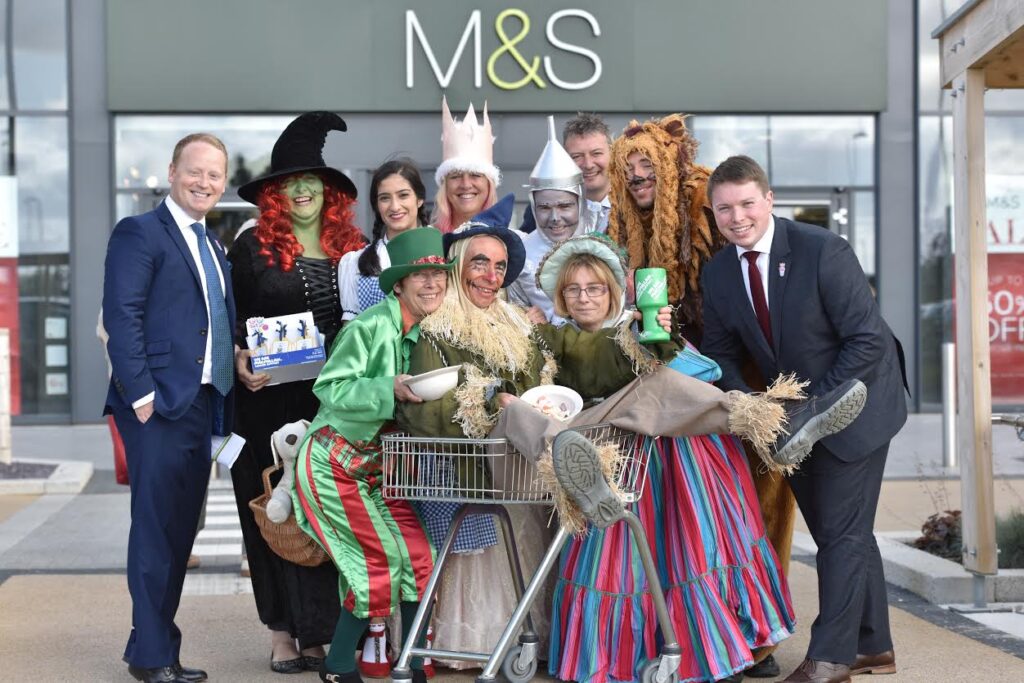As more companies seek to clarify their brand values for both employees and customers alike, doing more for charities and the environment has slowly risen up the agenda for many businesses.
But how do you go about selecting a charity to support, and what are the benefits of going beyond ad-hoc fundraising and actually forming a partnership with a charity?
We spoke to Alix Wooding, Head of Corporate Partnerships at Macmillan Cancer Support, to find out more.
Shonette Laffy, HRZone: What do you see as being the benefits to an organisation in having a charity partnership scheme?
Alix Wooding: The benefits of having a volunteering or charity partnership scheme are vast.
In terms of employee engagement, a charity partnership is a great way to unify staff and boost morale – an event such as Macmillan’s World’s Biggest Coffee Morning is a fantastic opportunity for staff teams to come together one day a year and hold a coffee morning to raise funds for the charity, which creates a great sense of energy amongst employees and provides a real feeling of working together for the greater good.
We work with a range of partners in varying capacities, from events and employee fundraising to sponsorship and developing joint services. One of the things that is really important to us is to ensure that staff and customers of our partners know that they can turn to Macmillan for help: as cancer affects one in two people, this means we can provide much needed information to staff members and customers about something that may already affect them or might do so in the future.
It is also a great way for businesses to connect to their local community and raise their profile as a socially aware enterprise.
HRZ: What are some of the best ideas you've heard of for fundraising events & schemes?
AW: We find that within a company, staff go above and beyond year in year out to raise money for Macmillan, and are always thinking of inventive and fun new ways to support us.
Whether taking part in an existing fundraising event, such as Brave the Shave and losing their locks for charity, or taking part in a hike, there is a clear sense of wanting to get involved and come together as a team.
Often we find staff set about implementing their own events such as the football tournament currently being set up by Greene King, which not only raises money for the charity, but creates a real buzz in the local region.
Externally, it’s fantastic when customers are able to donate to charity by utilising a service which they already use. PizzaExpress’ initiative to donate 5p from every Padana pizza sold to Macmillan is a fantastic way of raising money for the charity without customers having to do anything differently; similarly, M&S donating 5p from every cake and coffee sold in cafes throughout September means those using that service can donate simply by giving themselves a well-earned treat.
Some of the best examples of what can be achieved in partnership aren’t about money. A recent example of a successful campaign which worked well was Macmillan’s partnership with Travis Perkins on the Don’t Let Cancer Ruin Your Foundations, focusing on men and how they are more likely to get cancer and die from cancer due to not checking signs and symptoms.
A survey conducted by Macmillan revealed almost half would feel discouraged from talking about changes to their health such as a lump, a suspicious mole or pain, in case they were perceived as ‘making a fuss’, which is why we wanted to raise awareness in that demographic.
Men and those who work in the construction industry are an audience which can at times be hard to reach, which is why we felt the partnership was a great opportunity to reach out.
Since the launch we have already received positive feedback from employees who are now getting a check up where previously they perhaps wouldn’t, which shows what a difference it can make.
HRZ: How can businesses go about setting up a charity partnership?
AW: Most charities are happy to hear from companies who are really passionate about wanting to support them and get involved at all levels, from shop floor to CEO. Demonstrating a keenness to really team up and make a partnership as unified as possible is something which appeals on all sides.
You shouldn’t be embarrassed about having some clear objectives from a charity partnership
It’s also good to know what the company aim to get out of the partnership – employee engagement, alignment with a charity, providing service for staff or customers, engaging with the community etc.
You shouldn’t be embarrassed about having some clear – even commercial – objectives from a charity partnership. Good charities will work hard to make sure a partnership will fit the bill.
It’s also worth taking into account who would be managing logistics and what success looks like to them – is it a one off or a more long term commitment.
HRZ: Is there anything organisations should be sensitive of when selecting a charity?
AW: It’s really important that companies think carefully about what they are looking for in a charity partner before they invite applications. Drawing up criteria and being clear if charities don’t fit them can actually be helpful.
If you want to be really responsible, don’t waste charities time and money asking them to apply for something that they’re not in a position to win or to deliver well.
Similarly, while it’s good to design a selection process that involves all your key stakeholders, sometimes including a staff vote, do be careful that you aren’t asking charities to jump through too many hoops just for the sake of it.
When selecting a charity, it could be an idea to target a demographic that aligns itself with the business
And if in doubt then give a few charities a call for a chat – while it might be the first time you have run a selection process, most charities will have been through it countless times – and we are always happy to advise and guide.
When selecting a charity, it could be an idea to target a demographic that aligns itself with the business, such as a children’s charity teaming up with a company that makes toys for children – for example, Pampers has an strong ongoing partnership with Unicef, where purchasing a pack of pampers means also providing a vaccination to a child overseas.
However, this isn’t vital – Macmillan has a wide range of partners that span across a variety of services and demographics. The main thing would be that the company is really enthused about wanting to support that charity and work together.
Case Study: Marks & Spencer
Keen to get some information on a charity partnership in action, we also spoke to Tom Rawlinson, Foods Central Trader at M&S. Tom has been involved with the partnership with Macmillan for two years now and has worked for M&S for 10 years. This is the seventh year M&S have partnered with Macmillan, so far raising almost £6million for the charity.
HRZ: How did you go about selecting Macmillan as a partner?
Tom Rawlinson: At M&S we work with a wide variety of charities and organisations, for us it’s really important that our partnerships tackle the issues our customers are passionate about.
That’s one of the reasons our partnership with Macmillan has been so successful over the past seven years and why we selected them – our customers, colleagues and the communities we serve all want to play their part in helping people affected by cancer.
HRZ: What fundraising activities have you taken part in so far?
TR: This is the seventh year we’ve been working in partnership with Macmillan, since the partnership began we’ve raised over £6million. We fundraise in different ways, most crucially as the headline sponsor of World’s Biggest Coffee Morning.
We’re always blown away by the extra mile our colleagues go for the Coffee Morning – for last year’s Macmillan Coffee morning our Edinburgh Gyle store even hired a Cadillac car to complement their Grease themed morning – it was a real hit with customers!
Macmillan is also one of nine charities that are supported by ‘Sparks’, with a penny from every M&S transaction going to customers’ chosen charity and Macmillan is a recipient of proceeds coming from carrier bag sales in store.
HRZ: Whose responsibility is it within your company to maintain and promote this partnership?
TR: The relationship with Macmillan is headed up by the food section of our business.
I oversee the partnership and work very closely with the Macmillan Project Manager who is based at our Paddington office once a week, this helps ensure we work effectively and collaboratively.
Our charity partnerships contribute to our employee engagement score of 77%
In the run up to the Coffee Morning we also have a dedicated Project Manager seconded from our stores to ensure everything runs smoothly.
Colleagues from across the business collaborate on the partnership – from cake buyers, to internal comms to colleagues in store. Our charity partnerships, including Macmillan, contribute to our employee engagement score of 77% and we know colleagues enjoy taking part in the partnership.
It’s also an important way that we build trust and loyalty in our brand – for our 2015 World’s Biggest Coffee Morning campaign over 250 regional articles appeared across the media – directly talking to customers about our efforts.






